The wit and wisdom of five opinionated US women writers
Michelle Dean's book Sharp – The Women Who Made an Art of Having an Opinion, serialised in Radio 4's Book of the Week, builds a picture of the social and political progress of women through the 20th century, from Dorothy Parker to Nora Ephron.
Parker, Mary McCarthy, Susan Sontag, Pauline Kael and Ephron are united by their "sharpness" – the ability to cut to the quick with precision of thought and wit.
The world would not have been the same without Dorothy Parker's acid reflections on the absurdities of her life. Or Mary McCarthy's fiction, noted for its acerbity in analysing the finer nuances of intellectual dilemmas. Or Susan Sontag's ideas about interpretation, or Pauline Kael's energetic swipes at filmmakers. Or Nora Ephron's biting wit and strong female characters.
Together they define the cultural and intellectual history of 20th Century America. Here are ten each of their notable sayings.
About Michelle Dean
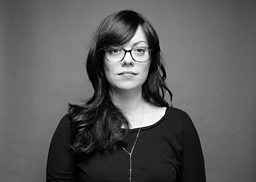
Michelle Dean is a journalist, critic, and the recipient of the National Book Critics Circle's 2016 Citation for Excellence in Reviewing. A contributing editor at the New Republic, she has written for the New Yorker, Nation, New York Times Magazine, Slate, New York Magazine, and Elle. Photo: John Midgely
1. Dorothy Parker
As part of the Algonquin Round Table, Dorothy Parker (1893–1967) established her reputation as one of the most brilliant wits in New York and came to epitomise the liberated woman of the 1920s.
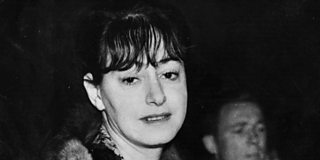
- Brevity is the soul of lingerie.
- Résumé Razors pain you, Rivers are damp, Acids stain you, And drugs cause cramp. Guns aren't lawful, Nooses give, Gas smells awful. You might as well live. (Poem)
- I've never been a millionaire but I just know I'd be darling at it.
- Men seldom make passes at girls who wear glasses.
- If you want to know what God thinks of money, just look at the people he gave it to.
- You can lead a horticulture, but you can't make her think.
- I like to have a martini, Two at the very most. After three I'm under the table, after four I'm under my host.
- I don’t care what is written about me so long as it isn’t true.
- Beauty is only skin deep, but ugly goes clean to the bone.
- I hate writing, I love having written.
2. Mary McCarthy
As both a novelist and a critic, Mary McCarthy (1912–1989) was noted for her bitingly satiric commentaries on marriage, sexual expression and the role of women in contemporary urban America.
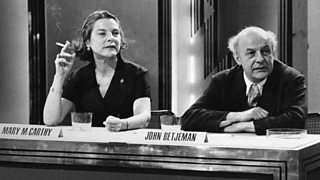
- We are the hero of our own story.
- Every word she [Lillian Hellman] writes is a lie, including “and” and “the.”
- Bureaucracy, the rule of no one, has become the modern form of despotism.
- You musn't force sex to do the work of love or love to do the work of sex.
- Every age has a keyhole to which its eye is pasted.
- In violence, we forget who we are.
- People with bad consciences always fear the judgment of children.
- The happy ending is our national belief.
- In science, all facts, no matter how trivial or banal, enjoy democratic equality.
- Being abroad makes you conscious of the whole imitative side of human behavior. The ape in man.
3. Susan Sontag
Susan Sontag (1933–2004) was a brilliant essayist – inquisitive, analytical, fearlessly outspoken. Her work is characterised by a serious philosophical approach to modern culture including the ground-breaking "Notes on Camp" and the personal and liberating "Illness as Metaphor".
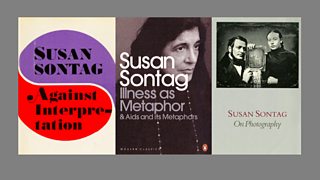
- The only interesting answers are those which destroy the questions.
- Mallarme said that everything in the world exists in order to end in a book. Today everything exists to end in a photograph.
- Travel becomes a strategy for accumulating photographs.
- Intelligence is really a kind of taste: taste in ideas.
- The camera makes everyone a tourist in other people's reality, and eventually in one's own.
- The painter constructs, the photographer discloses.
- Interpretation is the revenge of the intellectual upon art.
- What is most beautiful in virile men is something feminine; what is most beautiful in feminine women is something masculine.
- Books are funny little portable pieces of thought.
- In place of a hermeneutics we need an erotics of art.
Listen to "Susan Sontag", read by Alexandra Mathie
4. Pauline Kael
Film critic of the New Yorker magazine from 1968 to 1991, Pauline Kael's biting, highly opinionated and sharply focused reviews espoused opinions often contrary to those of her contemporaries. Kael (1919–2001) was one of the most influential American critics of her day.
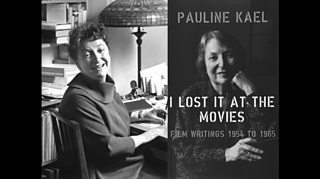
- Movies are so rarely great art that if we cannot appreciate great trash we have very little reason to be interested in them.
- A mistake in judgment isn't fatal, but too much anxiety about judgment is.
- Citizen Kane is perhaps the one American talking picture that seems as fresh now as the day it opened. It may seem even fresher.
- In the arts, the critic is the only independent source of information. The rest is advertising.
- The first prerogative of an artist in any medium is to make a fool of himself.
- Her only flair is in her nostrils.
- It seems likely that many of the young who don't wait for others to call them artists, but simply announce that they are, don't have the patience to make art.
- Irresponsibility is part of the pleasure of all art; it is the part the schools cannot recognise.
5. Nora Ephron
Nora Ephron (1941–2012) was a journalist, blogger, essayist, novelist, playwright, Oscar-nominated screenwriter and film director. She brought her sharp New York wit to all her work and in particular to the romantic comedies Sleepless in Seattle and When Harry Met Sally.
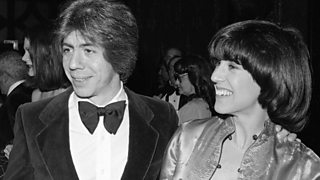
- Above all, be the heroine of your life, not the victim.
- In my sex fantasy, nobody ever loves me for my mind.
- If pregnancy were a book they would cut the last two chapters.
- I try to write parts for women that are as complicated and interesting as women actually are.
- Summer bachelors, like summer breezes, are never as cool as they pretend to be.
- Insane people are always sure that they are fine. It is only the sane people who are willing to admit that they are crazy.
- My mother wanted us to understand that the tragedies of your life one day have the potential to be comic stories the next.
- My mother was a good recreational cook, but what she basically believed about cooking was that if you worked hard and prospered, someone else would do it for you.
- As far as the men who are running for president are concerned, they aren't even people I would date.
- When you realise you want to spend the rest of your life with somebody, you want the rest of your life to start as soon as possible.

Books and readings on Radio 4
-
![]()
Book of the Week
Serialised book readings, featuring works of non-fiction, biography, autobiography, travel, diaries, essays, humour and history.
-
![]()
Open Book
New fiction and non-fiction books, interviews with authors and publishers, and unearthing lost classics.
-
![]()
A Good Read
Guests discuss books worth reading with Harriet Gilbert.
-
![]()
Audio Books
Exceptional readings and dramas, available to download to your tablet or smartphone in the iPlayer Radio app.




